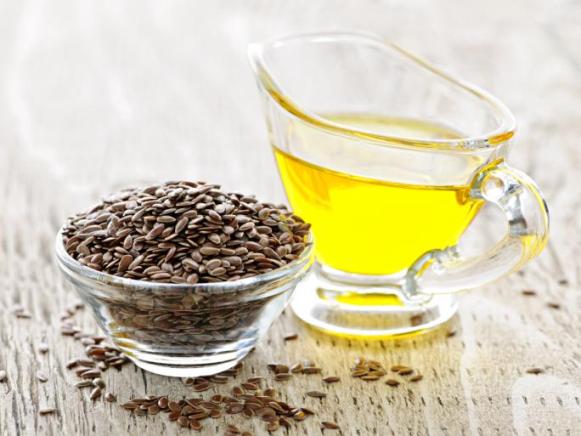Flaxseed is the vegetable source with greater intake of Omega 3 acids, offering to our body even more popular as oily fish like salmon. We’ve all heard about its properties to help to lose weight; however the reality is that most women do not know exactly how to include it in our diet or how to combine it.
As a seed can be very easy to mix the flaxseed with other cereals, or include it in the elaboration of breads and buns. But the most practical method is grind and takes two tablespoons daily mixed with juice, milk, and other drinks or even in soups and stews. But what are its benefits?
Benefits of Flaxseed
Experts recommend consuming a spoonful of flaxseed that equals 10 grams. This is enough to have a good part of the alpha-linolenic acid that is needed every day. However, you can eat a little more as long as it is not more than 20 grams because a large amount of fiber can cause discomfort.
In principle it is a wonderful source of fiber that helps fight bad cholesterol, regulate sugar levels in the blood and fight constipation, making it an excellent choice for those who want to lose some weight and is that flaxseed combined with a balanced diet and regular exercise can get wonderful effects.
It is precisely its ability to regulate cholesterol and its large content of omega 3 makes it a perfect cereal to take care of our heart and prevent various types of cancers such as colon or breast cancer. Also helps digestion and is an excellent ally for patients with diabetes, heart disease and inflammatory diseases such as gastritis, arthritis etc., and helping to reduce inflammation.
Flaxseed relieves allergies and is effective for lupus. As it contains the essential oils omega-3, 6, 9 and other nutrients, it helps the body to have a high resistance to diseases.
It is ideal for the treatment of arteriosclerosis, multiple sclerosis, coronary arterial hypertension, thrombosis and cardiac arrhythmias. One of the unique characteristics of flaxseed comes from prostaglandin, which regulates function and blood pressure and plays an important role in calcium metabolism.
Flaxseed is an excellent laxative that avoids the diverticula in the walls of the intestine, eliminating contaminating toxins, lubricating and regenerating the intestinal flora. It is ideal both for cases of constipation and acidity and helps to expel gastric gases.
People who consume flaxseed regularly notice a large decrease in nervous tension and a feeling of calmness. It is recommended in people who have jobs with a lot of pressure. It is also able to improve schizophrenic behavior problems and mental problems of older people. Flaxseed is a dose of energy for the brain because it contains nutrients for the neurotransmitters.
Contraindications
Due to its high fiber content, flaxseed is contraindicated in children under six months of age because its digestive system is not yet ready to process it efficiently. People with intestinal problems may have discomfort.
Risks of Flaxseed
First of all, there are people who are allergic to flaxseed. This should be the main thing you should find out before adding flaxseed to your diet.
Ingesting more than two tablespoons of flaxseed can cause discomfort during the absorption process of nutrients in the intestine, generating an excessive production of gases and even causing an intestinal obstruction. In addition, although their fats are healthy, they are equally caloric, which can cause weight gain.
If you take into account these precautions and consult your trusted doctor beforehand, you can add flaxseed to your die and enjoy its many health benefits.

